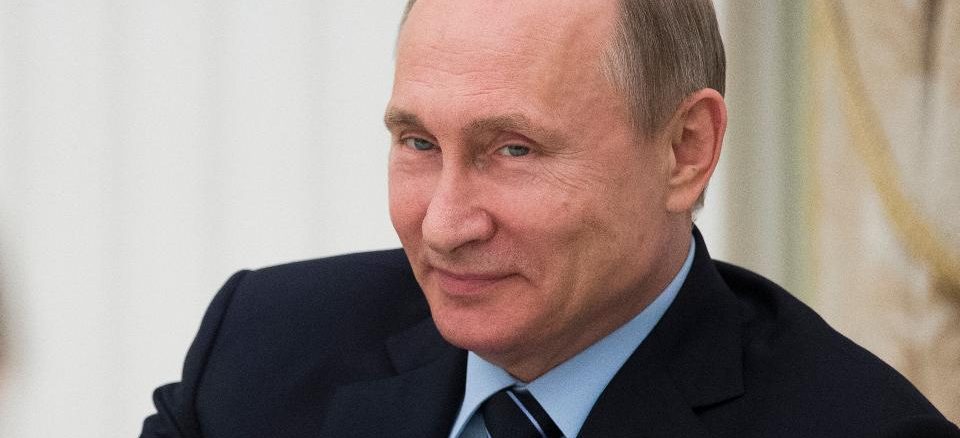
A missive written by Russia's President Vladimir Putin entitled "Being Open, Despite the Past" was written to coincide with the 80th anniversary of the beginning of the Great Patriotic War better known to the West as the Second World War. Let's look at some of the more interesting comments from Putin, particularly as they pertain to Russia's relationship with Europe.
As background, Germany launched a surprise attack against the Soviet Union on June 22, 1941 with the operation being codenamed "Operation Barbarossa", the largest military operation by Germany during the Second World War with Germany and its allies assembling over 3.65 million troops. There were three main goals of the invasion:
1.) the seizure of land within the USSR that would become part of the "living space" or "lebensraum" needed by Germany to ensure its survival. Given Germany's close geographic proximity to the eastern parts of the USSR, the move to conquer this living space began with the invasion of Poland in September 1939 and continued as Nazi troops pushed eastward into Russia.
2.) the destruction of the Soviet Union whose citizens were regarded as "untermenchen" or subhuman and racially inferior by the Aryan leadership of the Nazi Party.
3.) the permanent elimination of the Communist threat to Germany.
Operation Barbarosa involved 134 divisions along the front lines with an additional 73 divisions being emplaced for deployment behind the front. Three army groups consisting of more than 3 million German troops and 650,000 troops from Germany's allies Finland and Romania. During the first six weeks of the invasion, Soviet troops suffered catastrophic military losses; nonetheless, the Soviet Union failed to collapse as was expected.
Here is a map from the United States Military Academy showing how Operation Barbarossa proceeded from June 22, 1941 to August 25, 1941
Let's now take a brief look at the casualties suffered by the Soviet Union and other nations during the Second World War:
Let's compare:
United States – population 132 million, 16.4 million military personnel
– 292,000 military personnel killed or missing in action
– 675,000 military personnel injured
– less than 10 civilians killed or missing
TOTAL – 967,010 American military and civilians killed or injured
U.S.S.R.: population 193 million, 20 million military personnel
– 13.6 million military personnel killed or missing in action
– 5 million military personnel injured
– 7.7 million civilians killed or missing
TOTAL – 26.3 million Soviet military and civilians killed or injured
For every American killed or injured during the Second World War, the Soviet Union had suffered the loss or injury of 27 of its citizens.
With this background, let's look at some excerpts from President Putin's that we can now put into historical context, particularly given the massive loss of humanity in the Soviet Union. Here are excerpts from the first two paragraphs:
"On June 22, 1941, exactly 80 years ago, the Nazis, having conquered practically the whole of Europe, attacked the USSR. For the Soviet people the Great Patriotic War – the bloodiest one in the history of our country – began. Tens of millions of people lost their lives, the economic potential of the country and its cultural property were severely damaged."
We are proud of the courage and steadfastness of the heroes of the Red Army and home front workers who not only defended the independence and dignity of our homeland, but also saved Europe and the world from enslavement. Despite attempts to rewrite the pages of the past that are being made today, the truth is that Soviet soldiers came to Germany not to take revenge on the Germans, but with a noble and great mission of liberation. We hold sacred the memory of the heroes who fought against Nazism."
Putin goes on to remind the world of the German resistance fighters and anti-fascists who also played a role in defeating the Nazis, giving credit where credit is due.
Putin then looks at the significant economic co-operation that has developed between the two nations over the decades since the end of the Second World War including the "deal of the century":
"In 1970, the USSR and the Federal Republic of Germany concluded a ”deal of the century“ on long-term natural gas supplies to Europe that laid the foundation for constructive interdependence and initiated many future grand projects, including the construction of the Nord Stream gas pipeline.
With this history in mind, Putin goes on to clearly outline where the problems for a united Europe lie (my bolds):
"We hoped that the end of the Cold War would be a common victory for Europe. It seemed that just a little more effort was needed to make Charles de Gaulle's dream of a single continent – not even geographically ”from the Atlantic to the Urals“, but culturally and civilizationally ”from Lisbon to Vladivostok“ – become a reality.
It is exactly with this logic in mind – the logic of building a Greater Europe united by common values and interests – that Russia has sought to develop its relations with the Europeans. Both Russia and the EU have done a lot on this path.
But a different approach has prevailed. It was based on the expansion of the North Atlantic Alliance which was itself a relic of the Cold War. After all, it was specifically created for the confrontation of that era.
It was the bloc's movement eastwards – which, by the way, began when the Soviet leadership was actually persuaded to accept the united Germany's accession to NATO – that turned into the main reason for the rapid increase in mutual mistrust in Europe. Verbal promises made in that time such as ”this is not directed against you“ or ”the bloc's borders will not get closer to you“ were quickly forgotten. But a precedent was set.
And since 1999, five more “waves” of NATO expansion have followed. Fourteen new countries, including the former Soviet Union republics, joined the organization, effectively dashing hopes for a continent without dividing lines…"
Here are three maps showing how NATO has expanded since its origins in 1949:
Putin continues by stating that the Ukrainian coup crisis of 2014 placed countries in a position where they either had to be with the West or with Russia and asks this question of his readers:
"Why did the USA organize the coup and the European countries weak-heartedly support it, provoking a split within Ukraine and the withdrawal of Crimea?"
Putin then offers words of caution
The whole system of European security has now degraded significantly. Tensions are rising and the risks of a new arms race are becoming real. We are missing out on the tremendous opportunities that cooperation offers – all the more important now that we are all facing common challenges, such as the pandemic and its dire social and economic consequences."
….followed by words of advice:
"We are open to honest and constructive interaction. This is confirmed by our idea of creating a common space of cooperation and security from the Atlantic to the Pacific Ocean which would comprise various integration formats, including the European Union and the Eurasian Economic Union.
I reiterate that Russia is in favour of restoring a comprehensive partnership with Europe. We have many topics of mutual interest. These include security and strategic stability, healthcare and education, digitalization, energy, culture, science and technology, resolution of climate and environmental issues."
Putin concludes with these thoughts:
"The world is a dynamic place, facing new challenges and threats. We simply cannot afford to carry the burden of past misunderstandings, hard feelings, conflicts, and mistakes. It is a burden that will prevent us from concentrating on the challenges at hand. We are convinced that we all should recognize these mistakes and correct them. Our common and indisputable goal is to ensure security on the continent without dividing lines, a common space for equitable cooperation and inclusive development for the prosperity of Europe and the world as a whole."
It seems that Vladimir Putin is more than willing to put his nation's troubled and very costly past with Germany to rest in an effort to create a mutually beneficial relationship that includes the rest of Europe. Unfortunately, the expanded membership of NATO, led by Washington's global agenda, is more than willing to maintain the Cold War mentality that has existed since the mid-1940s. Russians paid an extremely heavy price for their geography proximity to Germany during the Second World War, a price that is seared into the psyche of Russians who still commemorate the loss of tens of millions of their family members. If there is any nation that understands the high cost of war and why it must be avoided at all costs, it is Russia. Surely, if Russia can forgive Germany, Washington can put its Cold War mentality with the Soviet Union behind it.
You can publish this article on your website as long as you provide a link back to this page.

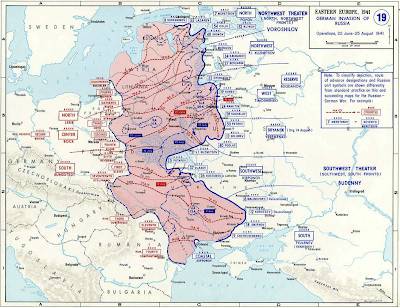
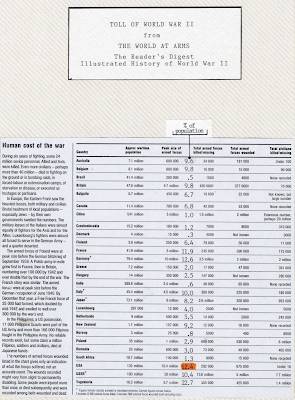
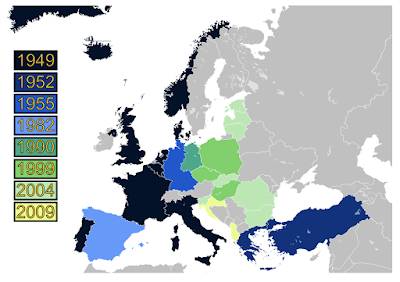
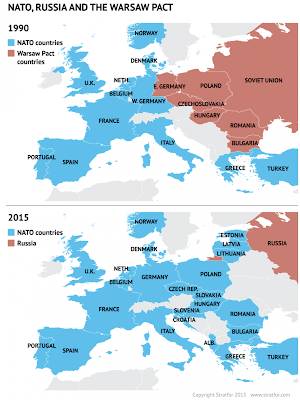
Be the first to comment